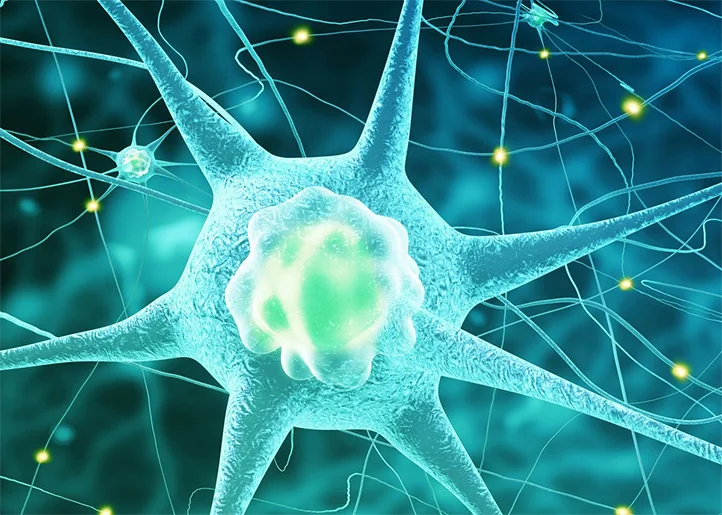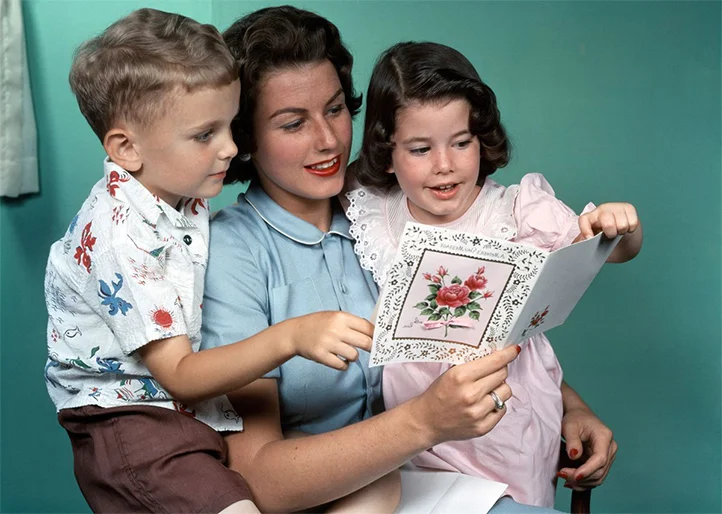Female psychology or feminine psychology is a branch of psychology that focuses on studying the mental processes and behavior of women. This field considers both the biological and sociocultural aspects of a woman’s life. Feminine psychology explores how various factors (such as hormonal changes, sociocultural expectations, and life experiences) affect a woman’s development, thinking, feelings, and actions.
Women’s psychology, like many other aspects of women’s lives, has developed within the context of dominant sociocultural and historical frameworks. The history of women’s psychology is inextricably linked to societal perceptions of a woman’s role, her capabilities, and her “natural” predispositions.
- Ancient cultures. In ancient cultures, women were often viewed as passive and subordinate. This perception was shaped by religious, social, and philosophical concepts that portrayed women as the “opposite” of men.
- Middle Ages. With the rise of Christianity in Europe, perceptions of women became even more restrictive, associating them with temptation and sin. Women’s psyche was often seen as weak and easily influenced.
- Renaissance period. During the Renaissance, professions began to emerge in which women were viewed as intellectual and cultural beings, although they still remained in the shadow of men.
- Industrial Revolution. With changes in the economic structure of society, the role of women also began to change. Despite this, psychological and scientific theories of the time (such as phrenology) attempted to “prove” the intellectual superiority of men.
- Psychoanalysis. Freudian psychoanalysis introduced new ideas about the female psyche, many of which were met with criticism and sparked much debate, especially his concepts of penis envy and the role of the Oedipus complex for women.
- Feminism. The feminist movements of the 20th century actively criticized traditional views of women’s psychology, emphasizing the sociocultural causes of many “female” problems and distortions.
- Modern research. In recent decades, there has been growing interest in studying gender differences from biological, cultural, and social perspectives. Women’s psychology has become more multifaceted, combining different approaches and methodologies. This attention to the female experience has resulted not only from scientific but also sociocultural development, where women are increasingly taking on active roles.
In conclusion, the understanding of women’s psychology has been and remains heavily influenced by sociocultural norms and historical context. These perceptions have not only shaped scientific research and theories but have also impacted women’s self-awareness, ambitions, and behavior in society.

Biological Factors
For a long time, women’s biology was considered merely an accompanying factor, but modern research increasingly confirms that it plays a key role in shaping psychological processes and behavioral reactions.
Throughout their lives, women go through several biological stages, such as menstruation, pregnancy, childbirth, and menopause. These stages undoubtedly affect their psycho-emotional state, cognitive functions, and social interactions. Various hormonal changes occurring in the female body directly impact the brain, thus determining sensitivity, perception, and a range of other psychological characteristics.
The study of the biological features of women’s psychology allows for a deeper understanding of how physiological processes interact with the psyche.
The Influence of Hormones on Women’s Psyche and Behavior
Hormones are biochemical substances produced by endocrine glands that regulate many functions in the body, including growth, metabolism, reproductive functions, and, of course, mood and behavior. Women have several unique hormonal processes that play a crucial role in their mental state and behavioral reactions.
- Estrogen. This “female hormone” directly affects mood. High levels of estrogen contribute to an elevated mood, improved concentration, and overall well-being. A deficiency of estrogen, which is often observed during menopause or before menstruation, can cause depression, irritability, and poor sleep quality.
- Progesterone. This hormone supports pregnancy and regulates the menstrual cycle. Its fluctuations can cause PMS symptoms, such as irritability, fatigue, sleep disturbances, and mood swings.
- Oxytocin. Known as the “love hormone,” oxytocin enhances feelings of attachment and trust. It is released during touching, hugging, childbirth, and breastfeeding, promoting the formation of maternal instincts and creating an emotional bond between mother and child.
- Cortisol. This is the “stress hormone.” With prolonged stress, its level increases, negatively affecting mood and causing feelings of anxiety and depression.
Hormonal fluctuations associated with the menstrual cycle, pregnancy, childbirth, and menopause significantly affect a woman’s psyche. For example, some women suffer from severe depression after childbirth or experience pronounced PMS symptoms.
However, it is important to understand that hormones are just one of the factors influencing women’s psychology and behavior. They interact with other biological, psychological, and social factors, forming a unique psychological profile for each woman.
The Menstrual Cycle and Its Impact on Women’s Psychology
The menstrual cycle is a complex biological process that occurs in women every month, approximately from puberty until menopause. This process is regulated by a number of hormones and is associated not only with physiology but also with psychological and emotional changes.
- Follicular phase (approximately days 1 to 14). Begins on the first day of menstruation and continues until ovulation. During this time, estrogen levels gradually rise, which may be accompanied by improved mood, increased energy, enhanced social activity, and a desire to engage in new activities.
- Ovulation (approximately day 14). At this time, estrogen levels peak, contributing to increased libido. However, some women may experience headaches or ovarian pain during this period.
- Luteal phase (approximately days 15 to 28). After ovulation, the production of progesterone begins, preparing the body for a possible pregnancy. Some women may experience PMS symptoms during this time, such as irritability, fatigue, sleep disturbances, mood swings, breast tenderness, and bloating.
- Menstruation. The start of a new cycle, when levels of both hormones drop. Many women feel fatigue, lower abdominal pain, and changes in appetite.
Perception and mood can fluctuate throughout the cycle. Some studies have shown that women become more sensitive to emotional information or more susceptible to stress at certain periods of the cycle. These fluctuations are often associated with changes in hormone levels, as well as other factors such as stress, sleep quality, diet, and overall physical condition.
I want to emphasize that every woman is unique, and her experience may differ from what is described above. Many factors, including hormonal, sociocultural, and psychological ones, affect how a woman experiences her menstrual cycle.

Sociocultural Factors
Sociocultural aspects of women’s psychology reflect the influence of social and cultural factors on women’s perception, behavior, and inner world. In every culture, there are established stereotypes, expectations, and norms regarding “femininity,” which are formed and passed down from generation to generation. These sociocultural frameworks actively influence self-esteem, ambitions, relationships with men, and many other important elements in a woman’s life.
In different historical epochs and various cultures, women were assigned specific roles, ranging from housewife and mother to scholar, warrior, or ruler. These roles sometimes limited women but could also become a source of inspiration and strength. Modern society strives for equality, but traces of past beliefs and stereotypes are still deeply ingrained in the collective consciousness, creating additional psychological challenges for women.
The Influence of Social Stereotypes on the Formation of Female Identity
Social stereotypes are stable and generalized beliefs about members of a particular social group, in this context — about women. These stereotypes play a significant role in shaping women’s psychology and identity, as they influence their self-perception, body image, abilities, and role in society.
- Stereotypes of “Proper” Femininity. From early childhood, girls are often taught that a “real” woman should be caring, gentle, emotional, and submissive to a man. Such beliefs can limit career choices, hobbies, and even communication styles. Women who choose “non-traditional” paths for their gender often face criticism and misunderstanding from society.
- Appearance and Body Image. Stereotypes about what the “ideal” woman should look like are shaped by mass culture, advertising, and social media. Striving to conform to this ideal can lead to self-esteem issues, eating disorders, and depression.
- Role in the Family. Traditional stereotypes portray women primarily as mothers and keepers of the home. This creates additional pressure on women who strive for career growth or do not see themselves in the role of a mother.
- Sexuality. Stereotypes also concern women’s sexuality. Women who openly express their sexuality are perceived as “promiscuous,” while reserved behavior is interpreted as “chastity.”
Thus, social stereotypes can limit a woman’s freedom of choice and affect her self-esteem and sense of self-worth.
The Role of Women in Modern Society
The role of women in modern society has undergone significant evolution and expansion. While in the past women were often confined to domestic spaces and family care, today they are actively involved in professional, social, and cultural life.
For many women, a career has become not just a necessity but a means of self-expression and self-fulfillment. Modern women occupy key positions in companies, participate in scientific research, create businesses, and actively influence the economic and social life of their countries. However, in their pursuit of career growth, they often face the issue of the “glass ceiling,” gender biases, and the need to balance professional responsibilities with family care.
For many women, family remains a central element of life. But the understanding of the role within the family has also transformed: women are no longer just keepers of the hearth but are also partners equal to men in decision-making and the distribution of responsibilities. At the same time, many women face the need to balance work and family, which can cause stress and guilt.
Personal interests and hobbies have also become an important part of modern women’s lives. Whether it is sports, art, travel, or education — women seek opportunities for personal growth and new experiences. The openness of the world and the accessibility of information allow women to broaden their horizons and enrich their inner worlds.
Overall, the role of women in modern society has become more diverse and dynamic, offering opportunities for multifaceted development and self-realization.

Peculiarities of the Emotional Sphere
The peculiarities of women’s emotional sphere have always attracted the attention of scientists, psychologists, and philosophers. Emotions are an integral part of women’s psychology, often determining reactions, relationships with the world, and internal states. Women’s emotional sphere has its unique characteristics, shaped by both biological and sociocultural factors.
For a long time, it was believed that women are more emotional by nature, prone to frequent mood swings, and less resilient to stress. However, modern research shows that such an assertion is an oversimplification. Yes, women may exhibit higher emotional responsiveness to certain stimuli or situations, but this does not make them less resilient or adaptive.
Moreover, it is important to consider that a woman’s emotional sphere is closely linked to her physiology. Hormonal changes associated with the menstrual cycle, pregnancy, or menopause affect emotional state, sensitivity, and perception of the surrounding world.
Emotional Sensitivity and Intuition
Emotional sensitivity and intuition are often seen as important components of women’s psychology. Women, due to their innate and sociocultural characteristics, have a unique ability to deeply and subtly sense the nuances of the emotional atmosphere in their surroundings.
Women’s psychology, shaped by both biological and cultural factors, has provided women with tools for finely perceiving interpersonal relationships. This perception is often called intuition—the ability to feel, anticipate, or understand something without resorting to logical analysis or explicit evidence.
- Intuition, as a component of women’s psychology, has become a kind of defense mechanism in complex social situations, allowing women to quickly adapt, find common ground, or avoid potential threats. However, it is important to remember that intuition is not magic but the result of a complex process of information processing based on experience, knowledge, and, of course, emotional sensitivity.
- Emotional sensitivity, in turn, allows women to empathize, sympathize, and understand others more deeply. This aspect of women’s psychology makes them valuable members of groups where interpersonal relationships, empathy, and support are important. However, such sensitivity can also be a source of vulnerability when a woman becomes overly concerned with others’ problems or struggles to set boundaries in relationships.
Ability to Multitask and Empathy
The ability to multitask and empathy are two prominent characteristics often associated with women’s cognitive psychology and behavior. These qualities not only define women’s approach to solving many tasks but also play a key role in social dynamics and interpersonal relationships.
- Multitasking is the ability to perform or control several tasks simultaneously. Women, due to their historical experience, have often had to juggle various roles: mother, daughter, spouse, workforce, and so on. This need to combine functions may have contributed to the development of the ability to quickly switch between tasks and manage multiple streams of information at once.
- Empathy, or the ability to understand and share feelings, is another outstanding female trait. Empathy makes women excellent listeners, caring partners, and sensitive mothers. It enables deeper and more sincere communication with others and helps build trusting relationships.
Both of these abilities, while beneficial in everyday life, have their downsides. For instance, multitasking often leads to fatigue and reduced efficiency in each specific task, while an excess of empathy can lead to emotional burnout. Understanding these aspects and learning to balance them is the key to a successful and harmonious life for women.

Roles and Stages in a Woman’s Life
From birth to later years, a woman’s psychology undergoes a series of transformations shaped by natural biological processes, sociocultural context, and personal experiences. From a young girl searching for her place in the world to an adolescent facing self-identification issues; from a young woman striving for career growth and building a family to a mature woman re-evaluating her life and role in society.
Each stage and role a woman plays throughout her life uniquely contributes to shaping her inner world, values, beliefs, and emotions. With each new role and life stage come unique joys, difficulties, challenges, and achievements. The experiences gained at each stage enrich a woman’s psychology, making it complex, deep, and diverse.
Understanding the dynamics and variability of women’s psychology during different life periods allows for a better understanding of the uniqueness of women’s experiences and provides tools for supporting and helping women at each stage of their life journey, taking into account specific needs and developmental aspects.
Girl, Adolescent, Wife, Mother, Grandmother
- Girl: At this life stage, the main focus is on forming a basic sense of security and trust in the surrounding world. The psychological characteristics of a girl include curiosity, a desire for self-expression, and the formation of primary social bonds. For a girl, it is important to receive support and recognition from loved ones, which helps her develop self-confidence and an understanding of her individuality.
- Adolescent: Adolescence, a transitional period between childhood and adulthood, is characterized by an active search for one’s identity, a desire for independence, and the formation of a personal worldview. Adolescents face self-identity issues, social pressure, and first romantic relationships. This time can be full of contradictions, where the desire for independence clashes with the need for support.
- Wife: Entering into marriage or long-term relationships, a woman faces the need to reconcile her individual needs with those of her partner. This stage may include periods of happiness and harmony as well as periods of trials and challenges. A woman learns about compromise, delicately balancing between family and career, and understanding the psychology of men in relationships.
- Mother: Motherhood brings revolutionary changes to a woman’s psychology. The arrival of a child heightens the sense of responsibility, love, and care and can also lead to stress related to physical and emotional changes. A woman learns about sacrifice, patience, and discovers new facets of her personality in her role as a mother.
- Grandmother: At this stage of life, a woman often experiences a renewed sense of joy and freedom associated with the birth of grandchildren. She may re-evaluate her role in the family, becoming a wise counselor and support. This period is also characterized by reflection on the years lived, acknowledgment of achievements, and passing on experience to the next generation.
Key Crises, Fears, and Challenges of Each Life Stage
- Girl:
- Separation crisis: Transition from complete parental dependence to the first independent steps.
- Fears and anxieties: Fear of the dark, strangers, or separation from parents.
- Socialization: Adapting to social environments, such as kindergarten or school, where establishing peer relationships is required.
- Adolescent:
- Identity crisis: Searching for one’s identity and place in society, often accompanied by conflicts with parents.
- Social pressure: Striving to meet peer expectations, often amidst emerging sexuality.
- Academic problems: Stress related to exams, grades, and future career choices.
- Wife:
- Family relationship crisis: Learning to live with a partner while considering differences in upbringing, values, and expectations.
- Work-home balance: Finding harmony between career and household responsibilities.
- Sexual differences: Understanding and fulfilling one’s sexual needs and those of the partner.
- Mother:
- Motherhood adaptation crisis: Adjusting to a new role and changing lifestyle.
- Balance between personal life and child: Finding time for oneself while constantly caring for the child.
- Parenting challenges: Making decisions about parenting styles, teaching discipline, and setting boundaries.
- Grandmother:
- Re-evaluation crisis: Reflecting on the years lived, accepting changes related to aging and the psychology of old age.
- Changing roles: Transition from the active role of a parent to the role of a senior advisor in the family.
- Mortality: Acceptance and understanding of the closeness of life’s end.

Women’s Mental Health
Mental health plays a key role in everyone’s life, affecting overall quality of existence, the ability to cope with stress, and the ability to establish relationships with others. However, female psychology adds unique nuances to this aspect, as women face specific challenges that impact their mental well-being.
Many studies indicate that women are more prone to certain psychological disorders, such as depression or anxiety disorders. This may be related to biological factors and the characteristics of the female body that influence mental state, as well as the sociocultural aspects of women’s lives associated with the pressure of social standards and multitasking in daily life.
Nevertheless, understanding women’s mental health involves not only studying problems and disorders but also recognizing their unique capacity for resilience, empathy, and intuition. These qualities enable many women to effectively cope with life’s difficulties, find joy in daily routines, and establish deep and sincere relationships.
Features of Depression, Anxiety, and Other Mental Disorders
Mental disorders manifest differently in men and women, and this difference can be traced in terms of symptoms, duration, and even causes. Female psychology and physiology, as well as sociocultural factors, influence the specific manifestation of these disorders in women.
- Depression: Women are diagnosed with depression twice as often as men. This may be due to hormonal changes, such as the menstrual cycle, pregnancy, childbirth, and menopause. Women’s depression often manifests as fatigue, appetite disturbances, and insomnia. Women are also prone to “atypical depression,” which includes heightened feelings of despair and hypersomnia.
- Anxiety disorders: Women are also more likely to experience anxiety disorders. They may be overly concerned about the future, their health, or the well-being of their loved ones. Sociocultural pressure related to a woman’s role in society can exacerbate feelings of anxiety.
- Post-traumatic stress disorder (PTSD): Although this disorder can occur in anyone after trauma, women who have experienced sexual violence or other forms of physical abuse are particularly at risk of developing PTSD.
- Eating disorders: Women, especially young ones, are more likely to face issues such as anorexia, bulimia, or overeating. Society’s emphasis on beauty ideals can exacerbate these problems.
- Postpartum depression: This condition, caused by sudden hormonal changes after childbirth and the stress associated with caring for a newborn, can affect up to 15% of new mothers.
The Impact of Sociocultural Factors on Mental Health
Sociocultural factors play an important role in understanding women’s mental health. Female psychology and behavior are largely determined by these factors, as society and culture shape the expectations, standards, and social norms that women often strive to meet or resist.
- Gender stereotypes: From an early age, girls are often assigned certain roles and standards of behavior, such as being submissive, caring, or emotional. This often limits their ambitions, self-esteem, and inner freedom, which, in turn, can lead to stress or mental health problems.
- Social pressure: The focus on body image and appearance, reinforced by fashion, advertising, and social media, can lead to eating disorders, low self-esteem, and depression.
- The role of women in the family: In many cultures, women are traditionally assigned the role of caregiver, which can lead to excessive responsibility, stress, and fatigue.
- Violence: Women are often victims of sexual, physical, and psychological violence, which can negatively impact mental health and lead to PTSD, depression, and other mental disorders.
- Economic independence: In some cultures, women find it difficult to achieve economic independence, making them vulnerable to financial difficulties, which increases the risk of stress and related mental health problems.
- Access to education and healthcare: In some countries and cultures, limited access to education and medical services also negatively affects women’s mental health.
Sociocultural factors have a multifaceted impact on women that can be both direct and indirect. Understanding these factors helps develop effective strategies for supporting and helping women in the area of mental health.

Female Psychology and Sexuality
Female psychology and sexuality are multifaceted and closely interconnected topics that have been studied for many decades. Sexuality is not only a biological phenomenon but also a psychological, cultural, and social one, playing a central role in the development and self-identification of many women.
Sexual self-awareness, attitudes towards one’s body, emotional and physiological desires, and experiences in relationships are all shaped by various factors. Female psychology is often linked to experiences formed in a sociocultural context where female sexuality can be both idolized and suppressed.
It is also important to remember that a woman’s sexuality goes through different stages throughout her life, from childhood and adolescence to old age. These stages are accompanied by various psychological transformations caused by both internal hormonal changes and external sociocultural influences.
Attitudes Towards One’s Body and Sexual Self-Determination
Attitudes towards one’s body and sexual self-determination are key aspects of female psychology. How women see and perceive their bodies can profoundly affect their self-confidence, self-esteem, and overall mental well-being.
- Attitudes towards the body: Attitudes towards the body are often formed under the influence of many factors, including cultural beauty standards, social expectations, and personal experiences. In a world where women are constantly shown what the “ideal” body should look like, many face pressure to conform to these standards. This can lead to various psychological issues, including eating disorders, low self-esteem, and depression.
- Sexual self-determination: Sexual self-determination, on the other hand, involves understanding and accepting one’s sexuality. This is a process in which a person learns about their sexual desires, preferences, and boundaries. Depending on the cultural and social context in which a woman grows up, it may be easier or more difficult for her to realize and express her sexuality. In some cultures, female sexuality is suppressed or stigmatized, which can sometimes lead to conflicts and psychological difficulties.
For many women, the process of self-determination and forming an attitude towards their bodies continues throughout their lives. It requires awareness, self-acceptance, and sometimes working with a psychologist or therapist.
Sexual Dysfunctions and Their Impact on the Psyche
Sexual dysfunctions cover a wide range of problems, from decreased libido to dyspareunia. These dysfunctions manifest both physiologically and psychologically. Their impact on the female psyche can be profound and multifaceted.
- Lowered self-esteem and confidence: Women facing sexual dysfunctions often feel less attractive or “broken.” These feelings can lead to a loss of confidence not only in sexual relationships but also in everyday life.
- Stress and anxiety: Issues in sexual life increase stress and anxiety. A woman may worry about whether her partner will be satisfied or whether she will be able to experience pleasure.
- Depression: Long-term problems with sexuality can lead to feelings of helplessness and hopelessness, which may contribute to the development of depression.
- Relationship problems: Sexual dysfunctions often cause tension in relationships. The absence of intimacy or dissatisfaction in sexual life can lead to partner estrangement.
- Avoidance of sexual intimacy: Women with sexual dysfunctions may begin to avoid sexual intimacy due to fear of failure or pain, which in turn affects their mental health.
It is important to note that the causes of sexual dysfunctions can be quite diverse. Therefore, a comprehensive approach to diagnosis and treatment, often involving specialists from different fields, is key to restoring sexual health and overall mental well-being for women.

Female Psychology in Relationships
In relationships, female psychology plays a special role, shaping not only the dynamics of the relationship but also a woman’s attitude towards herself, her partner, and the surrounding world. Understanding the intricacies of the female psyche in the context of romantic, familial, and friendly connections helps to better grasp the art of communication and establish harmonious relationships.
Firstly, female psychology in relationships is often defined by a combination of intuition, emotional responsiveness, and deep attachment. These qualities make women highly sensitive to changes in the emotional climate of relationships, allowing them to quickly respond to their partner’s needs or changes in their mood.
Secondly, sociocultural expectations also influence female psychology in relationships. For centuries, women have often been assigned the roles of guardians of the home and primary caregivers of children. These traditional roles affect their self-perception in relationships, their expectations, and communication styles.
However, in modern realities, where the boundaries between male and female roles are becoming less clear, women are actively redefining their roles and expectations in relationships. This creates new pathways for understanding and expressing themselves in love, friendship, and partnership.
Communication and Relationship Dynamics with Men
Communication and relationships between men and women are complex processes that have historically been influenced by various cultural, social, and biological factors. Understanding the specifics of this dynamic is key to achieving harmonious relationships.
- Emotionality and analyticity: Women are traditionally considered more emotional, while men are seen as more rational and analytical. This leads to different ways of perceiving and reacting to the same situation. A woman may simply express her feelings or concerns about something, whereas a man may look for a concrete solution to the problem.
- Non-standard expression: Sometimes, women may speak about abstract or intuitive feelings, which may seem unclear or ambiguous to men. This is not because women want to be mysterious but because their perception and expression of feelings differ from the straightforward and specific approach many men take.
- Attention to detail: Women often pay attention to subtle details and nuances in behavior that men may overlook, such as tone of voice, gestures, and facial expressions.
- Need for closeness: In many cultures, women are attributed a greater need for emotional closeness and communication, whereas men are often seen as valuing autonomy more. This leads to different expectations regarding time spent together and the depth of shared feelings and thoughts.

Psychotherapy and Support for Women
Psychological well-being is a key factor in everyone’s health. For women, who often face their own unique sets of challenges and stresses, psychotherapy and support play a special role.
Historically, “female psychology” in psychotherapy was often viewed through the lens of male norms and expectations. For a long time, female emotional and psychological experiences were undervalued or misinterpreted due to gender stereotypes. As a result, many women did not receive adequate help and support.
Modern approaches to psychotherapy recognize the uniqueness and diversity of situations that women may encounter at different stages of their lives. This can include issues related to motherhood, career, sexuality, as well as overcoming trauma and discrimination.
Now, with a deeper understanding of female psychology, psychotherapists can provide targeted assistance, taking into account the individual needs of each woman. Whether through individual counseling, group therapy, or other forms of support, the right approach will contribute to the improvement of women’s psychological health and overall well-being.
Specific Approaches to Female Psychotherapy
- Consideration of gender roles and stereotypes: Societal perceptions and expectations of “feminine” behavior and roles can pressure women and cause stress. Psychotherapy helps them recognize and overcome the influence of these stereotypes on their self-esteem and decision-making.
- Unique life transitions: Periods such as pregnancy, childbirth, menopause, and old age come with specific psychological challenges for women. Psychotherapy provides the necessary tools for safely navigating these transitions.
- Trauma: Women are often victims of sexual and physical violence. Psychotherapeutic work with trauma requires a special approach, considering the deep emotional scars such experiences can leave.
- Relationships and communication: Many women face issues in interpersonal relationships with partners, children, or friends. Psychotherapy aids in developing effective communication skills and setting boundaries.
- Balancing roles: In today’s world, women often juggle roles as mothers, daughters, wives, employees, and many others. Addressing overwhelm, stress, and fatigue from constantly balancing these roles is an important part of the therapeutic process.
Overall, the specificity of the approach to female psychotherapy lies in understanding and considering the unique psychological, biological, and sociocultural factors that can affect women’s well-being.
Resources and Assistance
In female psychotherapy, a variety of resources and methods are used to address diverse psychological and emotional problems. Here are some of them:
- Individual psychotherapy: One of the most common forms of support that allows a woman to work on personal issues, feelings, and experiences in a confidential setting with a professional.
- Group psychotherapy: Women often find support from those who have faced similar problems or situations. Group therapy provides an opportunity to share experiences and strategies.
- Family and couples therapy: These methods are suitable for working on relationship issues, family conflicts, or problems within a couple.
- Relaxation and stress management techniques: Meditation, breathing exercises, and progressive muscle relaxation are especially beneficial for women facing high levels of stress.
- Art therapy: Painting, dancing, singing, and other forms of art can be used as therapeutic tools for expressing feelings and emotions.
- Biofeedback: This method uses electronic equipment to teach patients how to control various physiological functions, such as heart rate, temperature, muscle tension, etc.
- Cognitive-behavioral therapy (CBT): Particularly effective for treating conditions like anxiety disorders or depression, CBT aims to identify and correct destructive beliefs and behavioral responses.
- Medication treatment: In some cases, medications may be prescribed as part of a comprehensive treatment plan.
- Online resources and apps: Today, there are many online resources, including websites, support forums, webinars, and mobile apps, offering additional strategies for overcoming psychological issues and education.
- Evidence-based programs: Many therapeutic interventions are research-based and provide specific programs or courses to support women in certain areas, such as self-confidence, parenting, or professional growth.
The choice of a specific resource or form of assistance depends on the individual needs, goals, and preferences of the woman.




